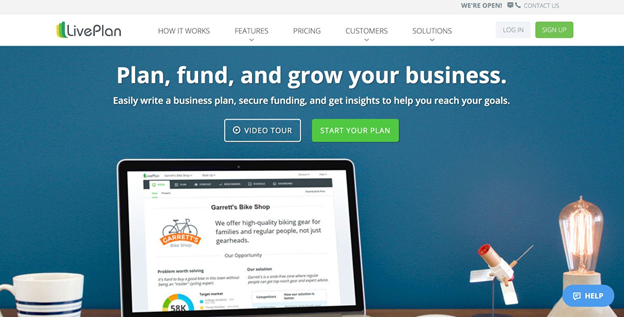Many types of businesses have been around for years, traditional ideas that are tried and true. They are the ones that people need no matter where they live or what they do.
There is more security in these types of businesses than innovative ones that can be risky. So, if you are thinking of starting a traditional company that allows you to follow the steps of many businesses that have come before you, you’re in luck.
We have put together this guide to help you navigate coming up with traditional business ideas to help you get your business going.
Why Traditional Business Ideas Are So Important
Traditional business ideas are critical because they involve the types of companies many of us require to live our lives. They include things such as:
- Dentists, doctors, and veterinarians
- Restaurants
- Legal services
- Pharmacies
- Grocery stores
- Mechanics
- Homebuilders
- Cleaners
- Tutors, teachers, and exam prep
- Lawn care specialists
- Designers
- Pet and house sitters
Traditional businesses are typically stores, restaurants, services, and agencies that aren’t going away anytime soon. They provide products or services that were relevant years ago and are still just as relevant today.
One traditional business many people have found success with is starting a tutoring business. The startup costs of it are minimal and only require time to develop curriculums and teaching plans. One key thing needed for this traditional business is a level of education appropriate to tutor others in certain subjects. From there, a business can be built that will always be needed. People will continue to learn, and people will continue to struggle to learn in specific areas and subjects.
Quick Tips to Coming Up With Traditional Business Ideas
If you aren’t sure where to start with your traditional business, the following tips will help guide you.
These tips are straightforward and easy to apply to help you come up with and further develop your business idea. They won’t require too much time and serve as the base for starting your traditional business.
Tip 1 – Monetize Your Passion
It is impossible for you to love everything you do as an entrepreneur. It may sound pessimistic, but there are some parts of running a business that you will not love. And that’s okay! However, if you plan to spend a great deal of time and energy building a company, it should be an idea you’ll enjoy doing overall.
For example, if you love dogs but hate all other animals, a veterinary clinic may not work out well for you. For your veterinary clinic to succeed, you need to be a lover and caretaker of all animals.
Instead, consider starting a dog walking business. This allows your love of dogs to shine through and is a traditional business that provides a service needed by many.
Take time to think through what you are passionate about and how others have already turned some of those passions into profitable businesses. Use the steps that they’ve taken as a guide for you to turn your passion into profit.
Tip 2 – Find a Gap
Traditional businesses are built on the foundation of things that have been done before. In other words, traditional businesses are tried and true and proven to be successful.
There is no need for you to go crazy with thinking outside of the box for a unique, never-been-done-before business idea. Instead, look for businesses that exist elsewhere but have not been created in your community yet or could be done better. Identify a gap in your area you can fill.
These can be snow shoveling or lawn care, or you can think bigger and consider starting a restaurant that serves food you know people will love.
Traditional businesses are created to provide people with a good or a service that is a necessary part of life, so think about what your community needs and how you can help provide that product or service to them.
Tip 3 – Research Your Competition
If you are going the route of starting a traditional business, you’ll definitely have competition.
But don’t worry–this is a good thing. You can see what other people are doing, and what is and isn’t working.
Another area to research is reviews. Look on Glassdoor, Yelp, Google, and any other site to find real customer reviews to see what people love and dislike about the existing companies.
To help you conduct your research on your competition, you can employ tools to get the detailed information you need. While a Google search will give you some information and allow you to stalk your competitor’s websites and social media pages, you need more information than that if you expect to do better than your competition.
One of our favorite tools for researching competition is SpyFu. This is a resource that allows you to research things like:
- Every place a domain shows up on Google
- Every keyword a competitor has bought on Google Ads
- Every organic rank
- Every ad variation
- Every change in ad spend every time

By utilizing SpyFu, you can see your competitors’ successes and failures and learn from them to avoid the same mistakes and see what works well.
The list of tools available with the purchase of SpyFu is a long one and will help you build a successful traditional business.
SpyFu offers three pricing plans:
Basic. $33 per month if billed annually. Includes unlimited search results, unlimited data exports, unlimited domain overview PDFs, 250 sales leads and domain contacts, 5,000 weekly tracked keyword rankings, and 10,000 top lists results.
Professional. $58 per month if billed annually. Includes everything in the Basic package plus 500,000 sales leads and domain contacts, 15,000 weekly tracked keyword rankings, 50,000 top list results, 10,000 API rows returned, and custom branded reporting.
Team. $199 per month if billed annually. Includes everything in the Professional package plus 2,000 sales leads and domain contacts, 40,000 weekly tracked keyword rankings, 75,000 top lists results, and five user logins.
Tip 4 – Outsource
As a traditional business owner, it is important to know your strengths. And chances are good your strengths do not include every aspect of running a business.
Rather than spend your time and energy learning to be an expert on everything in your business, hire others to help you.
If you are not good with all the accounting stuff, accept that you should not do the bookkeeping and instead hire a bookkeeper and/or an accountant. Leave that to the professionals, and save yourself the headache.
If you don’t know how to write up contracts, hire a lawyer to do it for you. Though the cost may seem high (especially when you’re first starting), it will save you a great deal of time and stress to have those contracts written correctly by a professional from the beginning rather than having to deal with fixing mistakes down the line.
Acknowledge and accept your strengths and weaknesses. Utilize your strengths to build your business and outsource the rest to professionals.
Tip 5 – Write a Business Plan
If you are well-versed in writing business plans or feel you can handle on your own, go for it.
This is a crucial part of starting your traditional business, and you’ll find it is easier to create one using a template. For example, if you decide to open a Mexican restaurant, chances are good you will find a strong business plan example for this specific type of business. That is one of the best parts of choosing to run with a traditional business idea.
However, if you still feel that writing a business plan is overwhelming, outsource this to a lawyer who has experience writing them or software like Enloop or LivePlan.
Long-Term Strategies for Traditional Business Ideas
The quick tips above are things you can do right now to get your traditional business started.
However, there is more to it than that. There are long-term strategies to implement to find success with your business. These will take more time and effort on your part, and you may not see a return on them immediately. But they are worth the time and energy.
Just be sure not to get discouraged when you don’t reap the benefits of these strategies immediately–they are meant to happen over time.
Strategy 1 – Expect Mistakes
As a business owner, there is a lot of room for error.
So much goes into starting and growing a successful business, and you will inevitably make a mistake or two along the way.
Thus, you need to accept that mistakes will happen and handle them in a way that won’t throw your entire business off-balance.
For example, let’s say you open a Mexican restaurant. But your produce supplier is not reliable and consistently delivers your produce late, then recognize that you made a mistake in choosing your supplier. Start fixing the error right away.
Look for suppliers other restaurants in the area work with and trust and switch to working with that company instead.
Take advantage of your mistakes by setting up review processes that help you make the right decisions next time. By keeping your business plan up to date, you can set up regular meetings to review your numbers, strategy, and more.
This helps you keep track of performance across your company and allows you to make decisions based on results. It also allows you to prepare for mistakes rather than having to react to them once they’ve already happened.
Strategy 2 – Prepare For Growth
The hope in starting your traditional business is that it will grow over time. You certainly don’t want to be in the same place two years down the road as you were when you started.
Thus, you must prepare your business for growth. Your business plan plays a key role here. Though you write your business plan when you start the company, you need to adapt it as your business grows and revise it to reflect that growth.
A tool that can help you do this is LivePlan. LivePlan provides you with the tools you need to project your business’ growth, so you know what to prepare for. With it, you create a budget and a forecast to check against the competition to see where you stand.

LivePlan also connects with QuickBooks so that you can see how your actual growth compares to your projected growth. This allows you to see instantly whether you are meeting your sales goals and staying within your budget. These are all key to the growth and success of your business.
Strategy 3 – Understand Your Customers’ Changing Needs
Though traditional businesses are rooted in providing people with conventional goods and services, it is important to note that customers’ needs change over time.
You must evolve with those changes. The best way to do this is to create buyer personas for sample customers. To do this, you’ll create a profile for a hypothetical customer. Let’s say name one Sally. Sally is 43 years old, she has a college education, and she likes to go out to eat once a week at a mid-level priced restaurant. Any other demographic data you can create for the hypothetical customers will allow you to anticipate Sally’s needs as they change so that your Mexican restaurant can meet them.
Maybe Sally enjoys trying fresh takes on traditional Mexican dishes. You could offer a couple of “trendy” items on your menu that Sally may not be able to find elsewhere. That will keep customers like her coming back for more. However, as Sally ages, she may find that traditional Mexican food is her preference, and the trendy items may not be as important as they once were.
Noting changes in your customers’ needs and preferences is vital to the success and growth of your business. It also helps create brand loyalty.
Next Steps
Create an LLC, if you haven’t already. In addition to tax benefits and liability protection, you’ll build credibility by doing business as a business instead of yourself.
It won’t take more than 10 minutes with ZenBusiness. Pick a state to register your LLC, answer a few questions, and ZenBusiness will handle the rest.

As your business grows, you need to have your website grow along with it. If you are new to creating websites, we’ve got just the article for you: Learn how to create a great website.
Another part of your growing traditional business is an excellent recruiting process. To hire the best employees for your business, you may want to implement recruiting software. It allows you to find qualified candidates, onboard employees, and help manage them effectively. Read this article that covers our top picks for recruiting software to find the right tool for you.














